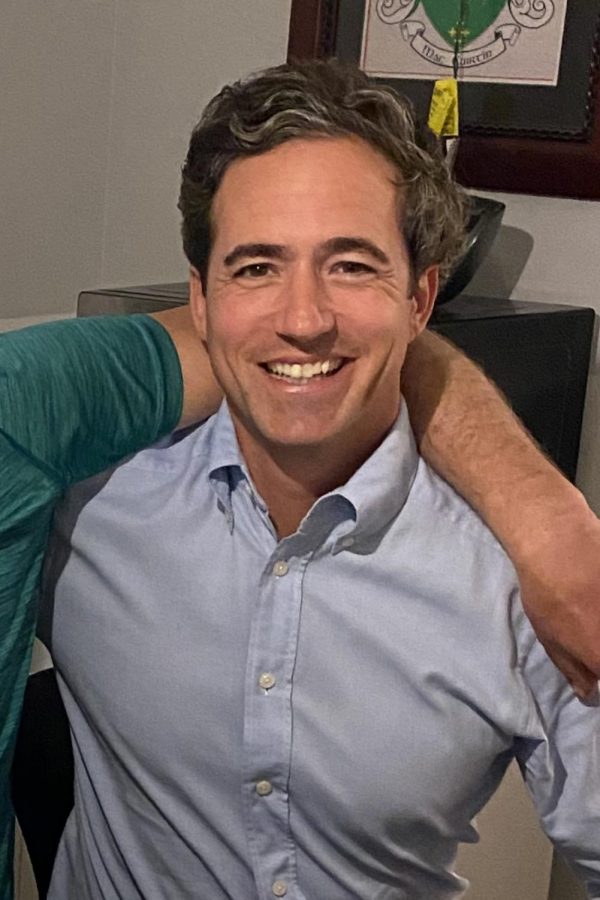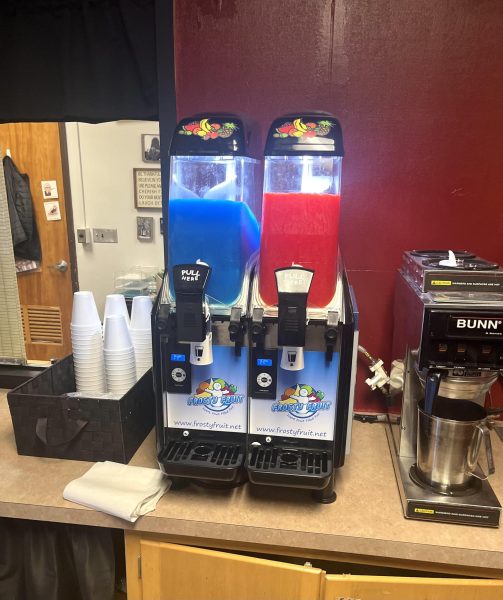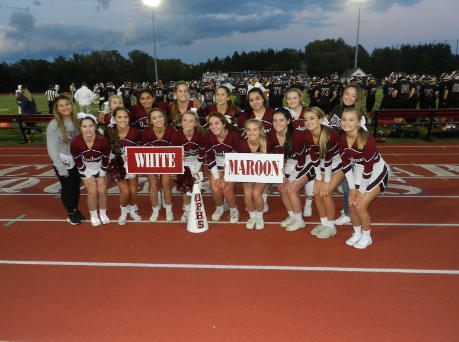How Did BlockDrive Come to Be and What Impact Did its Involvement in the Election Have?
Today I’ll be talking with Harry Curtin, my uncle, who has had a profound influence on my life. Although only 45 years old, he has been more successful than most others I know. Originally from Buffalo, Mr. Curtin now lives in Phoenix, Arizona where his tech software companies, BestIT and BlockDrive, came to be. In this interview, we will focus on BlockDrive, which is owned and created by Curtin, whose software was used to count ⅓ of the country’s votes in the 2020 presidential election between President Biden and former President Trump. The election was very controversial, and it is significant that his company played a role in verifying it. It is surreal to Curtin that the small company he started years ago has now grown to see this success. In this interview, we discuss how BlockDrive came to be and how being involved in such a contentious election impacted the company.
How old were you when you created BlockDrive? What year did the company open?
HC: Uh, I started it about 4 years ago, making that 2017. I was 40.
When did you realize that this is something you wanted to do?
HC: Well, I started a company BestIT almost twenty years ago and in consulting, and, you know, over the years kind of realized I also wanted a software company because software is a different kind of business. You can scale the business differently because it’s long term contracts whereas consulting is more of movie production; you kind of do a big project and it goes away, whereas software you just keep adding. It’s like insurance, right, you just keep adding customers and they can kind of get you through.
Where did you get your inspiration from?
HC: Well, I think the industry; just looking at what’s happening within the industry and then realizing it’s kind of up and down in revenue. Consulting was kind of difficult to manage. Also, that ultimately the value of business, if I want to look to sell a business, um, or raise capital, the evaluation was minimal in consulting. Whereas software is a service or in the software business the evaluation is much, much higher, you know, by like ten to twenty multiples.
What was the planning phase like?
HC: First, I came up with a name. I went to Palm Springs with my business partner and we tossed around names and then in the middle of the night I came up with the name, found out it was available, and bought it. Then, we knew we wanted to do some kind of data software; we didn’t really know what, but maybe in block chain. So, we founded BlockDrive. Really, over a period of maybe three months, we kind of tossed around what the business could maybe be and just started kind of, well, building for another six months, not really knowing if it would be something people would want or not. It was just something we thought could be valuable.
What obstacles were there when you started your company? How did you overcome them?
HC: Well, everyone wanted to talk to me when I started advertising, but nobody wanted to buy it. I think I was doing, maybe, six, seven, or eight sales calls with top companies in the country that wanted to learn about this new block chain technology that I had, but yeah, nobody was cutting a check, so it was pretty frustrating.
Was it nerve wracking for you to start this company?
HC: Uh, no, that stuff never really bothers me too much. I think it’s nerve wracking trying to figure out how to get the revenue in.
How were you able to afford everything in the beginning?
HC: Well, my other business was producing revenue that I could kind of live off of and I could balance some of the resources towards this software, to building the software, so that helped.
Did you ever think this type of success would be possible when you first opened the doors of BlockDrive?
HC: Um, when I first opened the doors I thought I’d have hundreds of millions of dollars because I was talking to everybody, so I actually was getting nervous about how rich I would be. To be honest, it was giving me anxiety. And then I found out I wasn’t going to be and I think it has kind of just been all sorts of emotions that have come. From not knowing what it is to then thinking it’s going to be huge to having nothing and trying to figure out what it could be; kind of scraping together the first deals and trying to get stuff over the finish line. Trying to build from there was kind of like every day was a bit of a roller coaster. So, I was just trying to be stable within that kind of ever changing environment.
How have your employees played a role in the company’s success?
HC: Well, my business partner did a lot of the coding for the software. I did a lot of the architecting and then what it was going to be. He built it all essentially.
What are some things, if any, that obstructed your views and goals? How did you get past those distractions to get where you are now?
HC: You know, I think there’s fear every day when you’re an entrepreneur. I think somehow being able to try to know that that’s what it’s going to be and just being able to not dive into that fear and more using it as what you need to do strategically, maybe that day, that week, that year, to kind of squash those fears and give you the comfort level you need.
Was your software created specifically for the election?
HC: No, it wasn’t. But we saw that there was an opportunity because it was starting to be talked about in the industry, but nobody had adopted it yet.
What went through your mind when it was decided that your software would be a part of the voting process?
HC: I just saw a lot of upside with it. Like, it didn’t seem like it would end; there seemed to be endless opportunities. And, I really have the right partner that came through with the customer.
What made you want to be involved in the election process, especially one of this magnitude?
HC: I think the importance of it meant that I could provide value and I do best when there’s high pressure and high value situations, where I can essentially prove myself.
Did your involvement in the election pique interest in BlockDrive? If so, how?
HC: Not really, we didn’t advertise it. My thought was I didn’t really want to, um, I don’t know. I probably should have. The CEO became a friend and I didn’t want his competitors to sell the technology. So, I felt like it would be disloyal if I did. I probably should have, in hindsight, but I didn’t.
Do you think your involvement in such a grating election helped your company?
HC: I think it helped us mature the technology in different areas, which was very helpful.
What do you think drives you to succeed?
HC: I think just an adventure. I just get bored, that’s about it. It’s not really the money, because that comes and goes. I just like the adventure of it and the mental challenge. I like to push myself intellectually.
I’m sure you’ve had lots of support during your lifetime. What role has your support system played in your success?
HC: No, I haven’t had support. I’ve been on my own. Even with my wife, whom I love, when I started it she was focused on the kids and it wasn’t something I could get support from her for. There wasn’t any other support structure to get, I think, outside of maybe my business partner and just us wanting to do it. You have everything stacked against you generally when starting a business. You don’t generally have support. You’re on your own. If you go in thinking you’re going to get support, chances are you’re not going to get it.
Were there ever times when you thought you would fail? If so, what would your former self think of where you are now?
HC: Yeah, I think I’m going to fail everyday. That’s what pushes me. I think I’m going to win and I think I’m going to fail everyday. I’m just trying to come out with a win again that day.
What advice has helped you throughout your business ventures? Is there anything you want to pass onto young entrepreneurs in the making?
HC: Yeah, I had a friend tell me this a long time ago, when I was probably nineteen or so: when you’re on your deathbed, you’re not going to be thinking about the Mercedes you have or about all the money you have. You’ll think about, maybe, the people you hurt or the people you could’ve done more for. We’re all going to get to that point, so you have to try to make those days the best you can.
After talking to Mr. Curtin, we know how BlockDrive came to be and how its involvement in the 2020 election impacted the company. It is clear that it takes drive and determination to succeed. BlockDrive came to be through Mr. Curtin’s persistence and willingness to improve his company constantly. You can check out the BlockDrive website at https://blockdrive.com/. There you can learn more information about the results of the election and Curtin’s platform.






